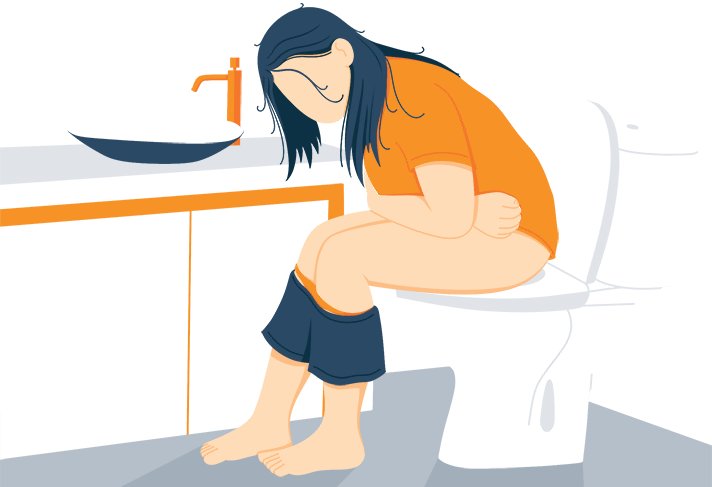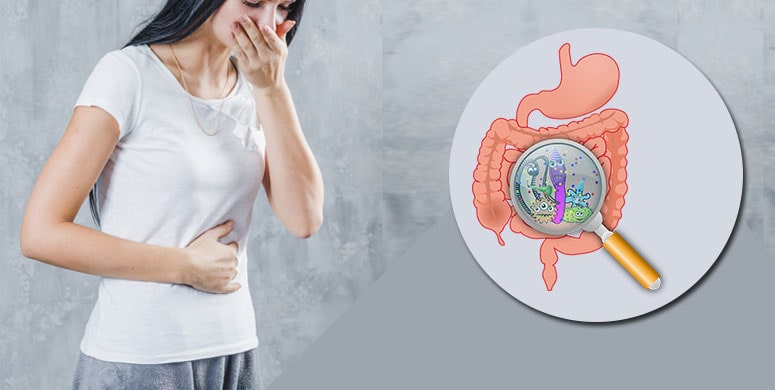Ulcerative colitis, e colitis, Ulcerative colitis symptoms, Colitis treatments, Colitis c, Microscopic colitis, Colitis disease, Symptoms, Ulcerative colitis symptoms in females, Inflammatory bowel disease, Crohn’s disease, Inflammatory bowel disease.
Root Cause of Disease
Microscopic colitis is an inflammation of the large intestine (colon) that causes persistent watery diarrhea. The disorder gets its name from the fact that it’s necessary to examine colon tissue under a microscope to identify it, since the tissue may appear normal with a colonoscopy or flexible sigmoidoscopy.
There are different subtypes of microscopic colitis:
- Collagenous colitis, in which a thick layer of protein (collagen) develops in colon tissue
- Lymphocytic colitis, in which white blood cells (lymphocytes) increase in colon tissue
- Incomplete microscopic colitis, in which there are mixed features of collagenous and lymphocytic colitis.
Symptoms
Signs and symptoms of microscopic colitis include:
- Chronic watery diarrhea
- Abdominal pain, cramps or bloating
- Weight loss
- Nausea
- Fecal incontinence
- Dehydration
The symptoms of microscopic colitis can come and go frequently. Sometimes the symptoms resolve on their own.
Causes
It’s not clear what causes the inflammation of the colon found in microscopic colitis. Researchers believe that the causes may include:
- Medications that can irritate the lining of the colon.
- Bacteria that produce toxins that irritate the lining of the colon.
- Viruses that trigger inflammation.
- Autoimmune disease associated with microscopic colitis, such as rheumatoid arthritis, celiac disease or psoriasis. Autoimmune disease occurs when your body’s immune system attacks healthy tissues.
- Bile acid not being properly absorbed and irritating the lining of the colon.
Risk factors for microscopic colitis include:
- Age: Microscopic colitis is most common in people ages 50 to 70.
- Sex: Women are more likely to have microscopic colitis than are men. Some studies suggest an association between post-menopausal hormone therapy and microscopic colitis.
- Autoimmune disease: People with microscopic colitis sometimes also have an autoimmune disorder, such as celiac disease, thyroid disease, rheumatoid arthritis, type 1 diabetes or psoriasis.
- Genetic link: Research suggests that there may be a connection between microscopic colitis and a family history of irritable bowel syndrome.
- Smoking: Recent research studies have shown an association between tobacco smoking and microscopic colitis, especially in people ages 16 to 44.
Home Remedies to treat Microscopic Colitis
Remedy – 1: Diet and discontinuation of medication
Treatment usually begins with changes to your diet and medications that may help relieve persistent diarrhea. Your doctor may recommend that you:
- Eat a low-fat, low-fiber diet. Foods that contain less fat and are low in fiber may help relieve diarrhea.
- Discontinue dairy products, gluten or both. These foods may make your symptoms worse.
- Avoid caffeine and sugar.
- Discontinue any medication that might be a cause of your symptoms. Your doctor may recommend a different medication to treat an underlying condition.
Remedy – 2: Omega-3 fatty acids
Materials : Nuts, fatty fish, Fish liver oil

Omega-3 fatty acids can be found in the following foods:
- Nuts
- Fatty fish
- Sardines
- Certain types of green vegetables
- Fish liver oil
Product Links: Almonds, Cashews, Walnuts, Peanuts, Chestnuts, Fish liver oil supplements
Remedy – 3: Exercise
Exercise is one of the remedies that can boost the functions in the body and reduce the rate of infection. If you go for 30 minutes of daily exercise in your park or gym, then you can tackle many symptoms of microscopic colitis causing inflammation very soon.

- Weight-bearing activities can help strengthen bones. It’s the kind of exercise that makes your body work against gravity, and includes things like using weights as well as walking, climbing stairs, and dancing.
- Because of ulcerative colitis, bones might not be as strong as they should be. Thirty percent to 60% of people with inflammatory bowel disease (including UC and Crohn’s disease) have low bone density.
- This could be because of the disease itself. Proteins called cytokines that are part of your response to inflammation may change how your body breaks down old bone and creates new bone.
Other Remedies
Fenugreek
Fenugreek is also known as methi. It can help to reduce the symptoms of ulcerative colitis by forming a protective coating along the digestive tract. Also, it can increase inflammation, and it can provide nutrition because it is rich in protein, calcium, iron, Vitamin A, and Vitamin C. You should add one teaspoon of crushed fenugreek seeds to one cup of hot water. You should let it steep for 3 – 5 minutes. You should strain it and drink this tea once per day until you see improvements in your condition.
Ginger
Ginger can be a very effective home remedy for managing the symptoms of ulcerative colitis because it has antioxidant and anti-inflammatory properties .
Also, this is a very effective home remedy for the digestive tract. But you should not take it in excess. In one cup of water, you should put 2 tablespoons of grated ginger. You should boil this home remedy and then let it simmer for about ten minutes. You should strain it and then drink ginger tea. If you want, you can add honey and lemon juice to it. You should do this natural treatment a few times per week until you see improvements in your condition. Also, you can take ginger supplements after you have talked with your doctor.
Psyllium seeds
This home remedy is rich in soluble fiber, which works as a bulk-forming agent, and it can improve gut motility, and this can help to get relief from mild to moderate diarrhea that is caused by ulcerative colitis.
You should add ½ – 2 teaspoons of ground psyllium seeds to one cup of warm water, and you should drink it before it becomes too thick. You should do this natural treatment once per day until your condition improves. People, who have never used this home remedy, should begin with ½ teaspoon and gradually increase the dosage.
When you are using this home remedy, you need to drink a lot of water throughout the day because this can help to prevent constipation. Before you start using this home remedy, you need to talk with your doctor because this home remedy can worsen the symptoms in some cases. If you have bowel obstructions or spasms, then you should not take this home remedy.
Preventions
There are no preventive treatments for colitis till now. The cause for colitis is also not yet known completely.
But good nutrition can play an important role in managing the disease. Changes in diet can help reduce symptoms. Some of the dietary changes that may be advised include:
- Not drinking carbonated drinks
- Not eating high-fiber foods such as popcorn, vegetable skins, and nuts while you have symptoms
- Drinking more liquids
- Eating more frequent, smaller meals
- Keeping a food diary that identifies foods that cause symptoms




